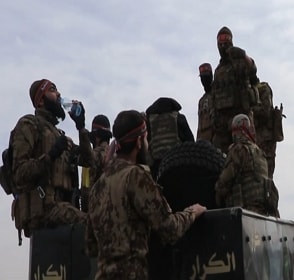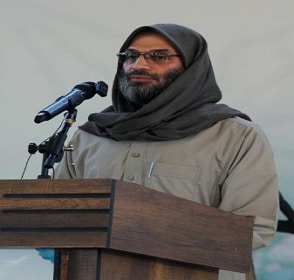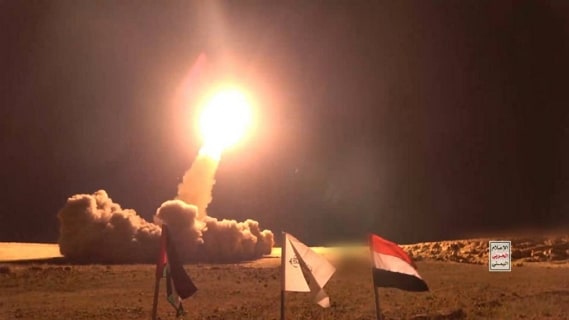The following report is now a complimentary offering from MEMRI's Jihad and Terrorism Threat Monitor (JTTM). For JTTM subscription information, click here.
On November 21, 2024, the London-based Saudi-funded daily newspaper Al-Sharq Al-Awsat published an article in English claiming that the Iran-backed Lebanese Hizbullah is struggling to cope with the war among its own base, as it tries to support over one million people displaced from Beirut's southern suburbs, south Lebanon, and the Bekaa Valley, dispersed to various parts of Lebanon, as well as to Syria and Iraq.[1]
Growing Demand And Undelivered Needs
According to Al-Sharq Al-Awsat, Hizbullah's media and officials have been promising compensation and reconstruction, and have also begun providing limited financial assistance, through a newly launched platform called "Samidoun" [Steadfast], an operation designed to offer financial help to the displaced, as well as to group members, in amounts ranging from $300 to $400.
"The financial aid, which has helped displaced people facing major financial struggles after using up their savings and losing their jobs, is still unclear, as it is also not known whether this aid will be given monthly, periodically, or just as a one-time contribution.
"Hizbullah officials continue to reassure families about the rebuilding process, which is a major concern for the thousands who lost their homes. A World Bank report estimates that around 100,000 homes were partially or completely destroyed in the conflict," the report added.
It also noted that Secretary-General Naim Qassem had stated that the party is preparing for large-scale reconstruction, promising that destroyed homes and businesses would be rebuilt. Reports also suggested that Iran pledged to help rebuild the affected areas in southern Lebanon in recent visits by Iranian officials to Beirut.
Samidoun: A Benefit Platform To Distribute Money, Not Aid
According to Lebanese newspaper L'Orient Today, the call to support civilians displaced by the war gave rise to Samidoun, a campaign that mobilized hundreds of volunteers to feed and shelter the displaced since early 2024.
According to campaign organizers, Samidoun had a "political position" to support the resistance against the Israeli attack, "whether or not they were with Hizbullah," and that idea was to distribute money rather than aid. The proceeds of an event organized by Samidoun on February 3, 2024, went to displaced people in the south.[2]
On October 9, 2024, "Balagh Media," a Telegram channel affiliated with Lebanese Hizbullah, and serving as the media outlet covering Hizbullah's Jabal Amil zone, published a post addressing the people displaced within Lebanon and others who had crossed into Syria and then to Iraq.
"Praise be to Allah for your safety. To reach you, serve you better, and determine your needs and means of steadfastness, we hope that you will fill out the form designated for the displaced family, in Arabic only, via the attached electronic link. The fields marked with red asterisk must be filled out."
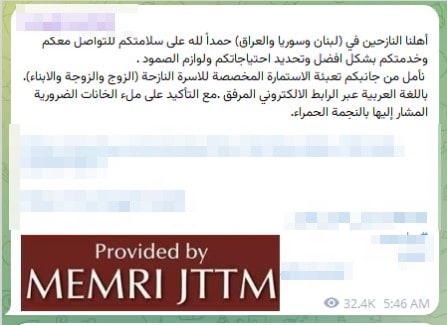
Platform Requirements
The link provided by Hizbullah-affiliated outlets, "Samidoun.co," prompts users to first create login credentials. Then, a website opens featuring a form in Arabic that requires applicants to provide their full name, gender, date of birth, civil registry information, a phone number, the number of family members, furniture needs, and the area of displacement. Applicants in Syria and Iraq are required to provide the name of the governorate where they are located.[3]
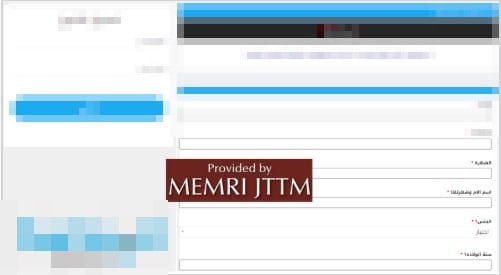
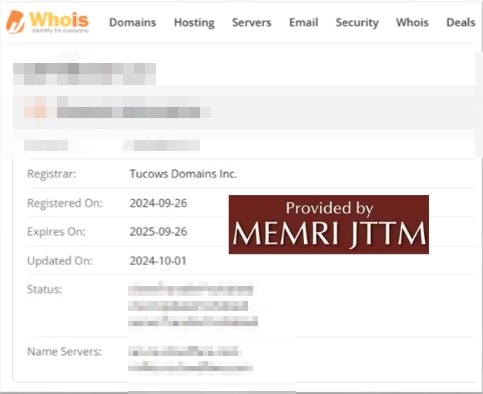
Hosted On Ontario-Based Internet Services Giant
The website uses the services of the U.S.-based reverse proxy service CloudFlare, Inc., and is hosted on Ontario-based Tucows Domains Inc., in Canada. Tucows Domains is a publicly traded company that provides internet services and telecommunications and is one of the world's largest domain registrars.
Due to privacy protection services, Whois records[4] show that the website's current owners are unknown.

[1] November 21, 2024.
[2] February 5, 2024.
[3] Accessed November 27, 2024.
[4] Whois, November 22, 2024.
The full text of this post is available to subscribers.
Please login or register to request subscription information from MEMRI



